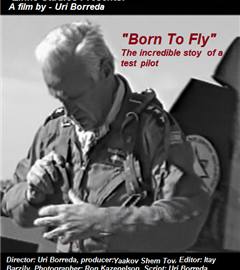
Archives

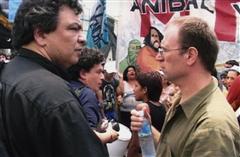
The House on August Street
The House on August Street tells the remarkable, unknown story of Beate Berger, a German Jew who single-handedly rescued over 100 children during the Holocaust, smuggling them from Berlin to Palestine in the 1930s.
Berger, founder of the “Beith Ahawah” (House of Love) Children’s Home, was quick to recognize the Nazi threat and resolved to protect “her” 120 children who lived under her care in August street 14-16.
This is a film about memory, about hope and about a woman who understood reality around her like very few did at the time. But most of all it is a film about love which was the essence of “Beith Ahawah” on Auguststarße 14-16. The film incorporates testimonies, rare archive footage and monologues played by the German actress Naomi Kruass, filmed in the original “Beith Ahawah” on August Street, Berlin.
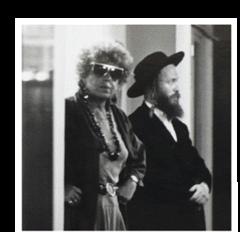
Citizen Aloni
With a lot of Chutzpah and against all odds, Shulamit Aloni managed to work her way to the top of the Israeli political world. At the age of 80, she now looks back at her brilliant career as a champion of civil rights in Israel, a feminist, a government minister, and a leader of one of the liveliest and most vibrant political movements in the history of Israel. This film tells the story of her life and times.
Aloni, who started out as the first civil rights lawyer in Israel, became a member of Knesset in 1964, and was the first woman to serve on its powerful Constitution and Law Committee. At that time, she was located on the left margins of the ruling party, MAPAI (later Labor). Five years later, she was removed by Prime Minister Golda Meir. Some say Golda was jealous of the young Aloni, who was more educated, and – as she herself puts it – had great legs. Aloni then founded her own party – the civil rights movement Ratz, which won 3 Knesset seats in 1973, and to this very day plays an important part Israel’s political life and culture, through its successor Meretz.
Aloni is considered the great founding-mother of civil rights in Israel. When she was a young teacher, she turned to the study of law, in order to educate the citizens of the young Jewish state as to “what law and order are, what the state can do, and what it cannot”. She wrote the first high school textbook on civil-democracy studies; she pioneered a popular radio show on civil rights which already in the 1950s helped citizens whose rights were violated by the state institutions; she was first to present the idea of civil marriage to Israelis – as a protest against the religious state-law that forbids civil marriage. In short, throughout her long career she has been a maverick, a thinker, and a pioneer.
She has lived through tumultuous times: Growing up in a poor Tel Aviv neighborhood, she was sent to a boarding school, where she lost her only brother who was killed in an accident and then her sweetheart, who was killed in the war. Later, she lived a life that has always been on the brink of contradiction: she married a man who administered the lands confiscated from Palestinians who became refugees after the war of 1948, whereas she herself was the great fighter for the rights of the Arab citizens of Israel and later of the Palestinians. She was a woman in a world that was dominated by men. She was the head of a political party, but she was not a good strategist. Indeed, her last battle was bitterly lost, and she found herself retired, much against her will.
This film tells the story of a strong and prominent woman, who even now, at age 80 – is very much alive and kicking. At the same time, it is a story of Israel as a state and a society – told from an unusual angle.
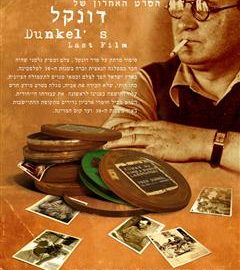
Dunkel’s Last Film
The film uncovers a fascinating story of Fred Dunkel, a German Christian, photographer, producer and businessman, who was married to a Jewish woman and was forced to leave Nazi Germany in the 1930’s for Palestine (today’s Israel), along with his wife and daughter. Dunkel, who was a member of the Nazi party, was declared deserter by the German authorities. In Israel, he became a photographer and director, recruited for Zionist propaganda. He also provided shooting and editing services for different institutions and private parties, British and Jewish alike.
In his work, Fred Dunkel documents the development of the settlement period in Israel, from the 1930’s to the establishment of the state of Israel. After the death of his first wife, he married Martha, a Czech immigrant and Holocaust survivor, who had come to Israel at the outbreak of the Second World War.
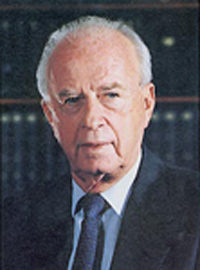
Yitzhak Rabin – A Biography
A two-part documentary film that tells the life story of the former Israeli Prime Minister and Nobel Laureate, Yitzhak Rabin. The documentary offers interviews with Rabin’s fellow politicians and family members. Their insights along with historic film footage offers a history of modern Israel through Rabin’s biography. Part I of Rabin describes Rabin’s childhood in Israel, his military service that began at sixteen, and the roots of his rivalry with Shimon Peres. Part II follows the politician from an upsetting lull in his career, to the height of his popularity, ending with his shocking assassination.
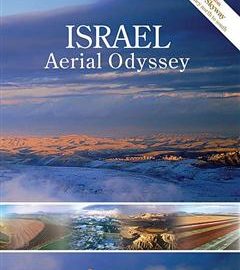
Israel- Aerial Odyssey
Join us on an aerial journey that brings the story of the Holy Land to life. Get a breathtaking new perspective on its past, as well as on its future in the making.
Stunning aerial photography uncovers the vast diversity to be found in Israel’s landscapes, history and archaeology. Hear the stories of people, religions and cultures that passed through the land, fought over it, lived in it, and prayed for it.
So come with us on a unique rendezvous with the people, colors and shapes that make up the diverse mosaic that is modern Israel.
This one-of-a-kind video creation conveys the experience of soaring through Israel’s sky, giving you an exciting new view of this fascinating, old-new land.
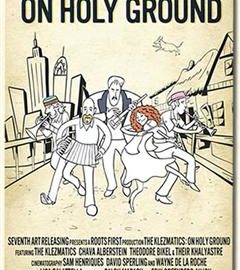
The Klezmatics: On Holy Ground
Director Erik Greenberg Anjou (A Cantor’s Tale, NYJFF 2006) returns with this high- energy documentary about the Grammy Award-winning, New York-based superstar klezmer band, The Klezmatics. Mesmerizing performances are mixed with soulful interview with band members as well as other performers including Joshua Nelson, Chava Alberstein, and David Krakauer. Anjou and crew followed the Klezmatics for over three years capturing the band’s highs, lows, and relentless march forward.
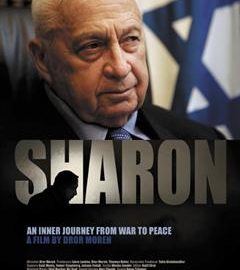
Sharon
In December 2003 Prime Minister Ariel Sharon publicly announced the Disengagement Plan. Against acrimonious resistance from his own ranks he ordered 21 Jewish settlements to be razed to the ground.
The father of the settlers’ movement, this general who was responsible for the massacres of Sabra and Shatila, turned into a strategic statesmen who committed himself to peace in the Middle East – and with eyes wide open, single-mindedly destroyed his life’s work.
Who was Ariel Sharon? How did the historic decision which lead to the eviction of settlers in Gaza and Samaria come about – thus clearing the path to a possible peace agreement?
Since January 4th 2006 Sharon has been fighting a different battle – the battle of life and death. In the years prior to his devastating stroke the director Dror Moreh accompanied the Head of State with his camera in an attempt to get to the heart of the puzzle that was Sharon in his later years. 70 hours of exclusive footage were created, introducing a different man who, until now, was hidden from public view.
The footage is emotional and private: Sharon thinks aloud, jokes, remembers times long gone and muses over the future, dreaming of a motorcycle trip to Mongolia – he goes about his daily routines as if the camera wasn’t around. A unique home movie evolved, supplemented by interviews with companions of the past decades and archival footage from his public life.
The film cannot answer all the questions the person refused to answer. But the person behind the statesman becomes acutely visible and the audience gets a sense of the inner conflict which forced Sharon to abandon his life’s vision of a Greater Israel and adopt and implement new positions.
Moreh’s film is not explicitly political yet it allows an insight into Israeli politics and the motivation inciting them. The film is classical tragedy and didactic play at the same time – emotional but not lacking the appropriate distance to the protagonist. This is a film which reaches far beyond the pattern of perpetrator and victim that has haunted the Middle East Conflict from the beginning.

Pickels
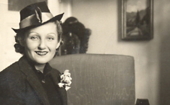
Yolande: An Unsung Heroine
This riveting documentary tells the story of Yolande Gabai de Botton, considered by many the Jewish “Mata Hari.” A sophisticated Jewish woman from Alexandria, Egypt, she risked her son’s life and her own while collecting intelligence in Egypt and fighting for the creation of an independent State of Israel while undercover as a reporter.
